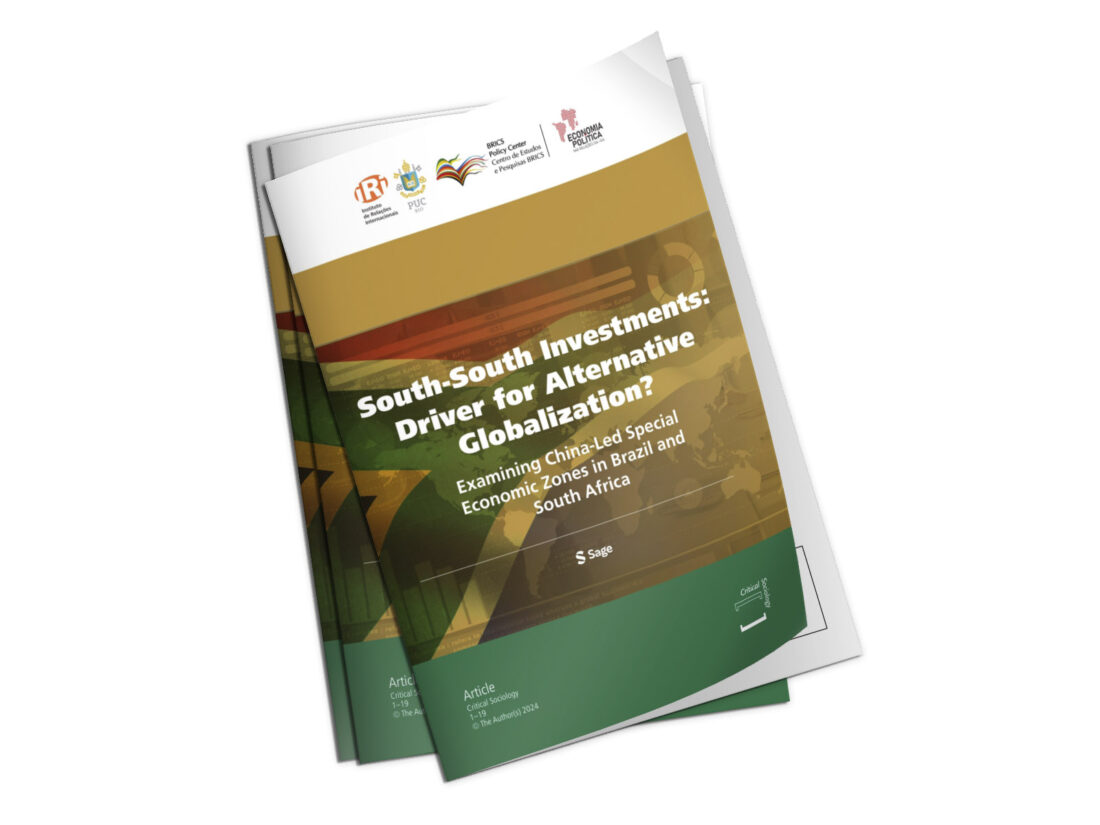
South-South Investments: Driver for Alternative Globalization?
The formation of BRICS marks a significant aspect of 21st-century globalization. This has spurred optimism in the Global South about offering an alternative to Western dominance. China has aimed to expand its global presence and influence, framing its relations as ‘South-South Cooperation’.
Brazil and South Africa are crucial partners within BRICS, receiving significant Chinese investment, loans, and assistance. In this article, we critically examine South-South investments through a comparative analysis of Chinese investments in South Africa and Brazil, focusing on the case studies of the Manaus Industrial Park and the Musina-Makhado Special Economic Zone. Our research employs ethnographic fieldwork and secondary sources to analyze Chinese investments and their socio-environmental impact. We begin with a discussion of globalization and current trends of deglobalization by proposing three dimensions to analyze the role of BRICS. While Chinese investment could offer an alternative to Western financing, a more balanced South-South agenda is needed. Both Brazilian and South African state and non-state actors must advocate for better conditions to avoid repeating patterns of resource exploitation and subordination. This shifts the debate beyond traditional dichotomies. Ultimately, embracing South-South FDI and Cooperation must be accompanied by critical analysis to ensure a truly transformative agenda for the Global South.[/vc_column_text][/vc_column][/vc_row]

